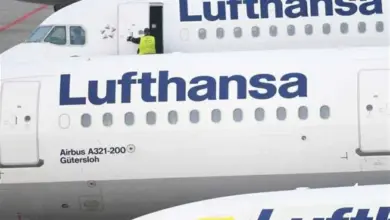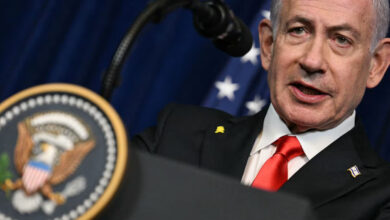Whatever the concerns about President Hosni Mubarak’s health these days, the venerable leader proved on Sunday that he’s still up for the occasional diplomatic meet-and-greet marathon.
But it’s unlikely that the triple header of one-on-one meetings between Mubarak and all the (non-Hamas) participants in the Israeli-Palestinian saga will produce the diplomatic breakthrough that the Obama administration claims to want so badly.
One after another, Mubarak performed the standard pleasantries with Palestinian Authority (PA) President Mahmoud Abbas, Israeli Prime Minister Benjamin Netanyahu and US Middle East envoy George Mitchell. What was said behind closed doors in the various meetings will, of course, remain a mystery, and none of the participants spoke to reporters afterwards. But Foreign Minister Ahmed Aboul-Gheit seemed to side with Abbas in saying that the time was not yet right for direct Israeli-Palestinian peace talks to resume.
“We are still hopeful that we can bridge that gap–the gap between the needs of security for Israel and the borders for the Palestinians,” Aboul-Gheit said. “You have to create the basis to proceed from indirect to direct talks. That is still lacking. We need to help the Americans and both parties to come closer to each other.”
The issue of direct vs. indirect talks has become the question of the moment in the Israeli-Palestinian standoff. The two sides haven’t spoken directly since Israel launched its devastating attack on the Gaza Strip in December 2008. In May, the Obama administration nudged Abbas into a four-month trial period of indirect “proximity talks”–meaning that Mitchell and Aboul-Gheit (and probably intelligence chief Omar Suleiman) would relay proposals back and forth.
The hope was that, by September, when the four-month proximity period ended, Israeli and PA representatives would have reached a point where they could actually sit down and talk to each other. But with that deadline fast approaching, Abbas has made it clear that no such progress has taken place. In early July, he invited a group of Israeli reporters to his Ramallah headquarters to air his grievances in an apparent attempt to appeal directly to the Israeli electorate.
“We haven’t received from Netanyahu even a single sign that might indicate progress” in the US-backed proximity talks, Abbas was quoted as saying by Israeli daily Maariv. “He has completely ignored everything we’ve raised.”
Abbas is seeking a blanket, no-loopholes moratorium on all Israeli settlement construction in the West Bank and East Jerusalem, plus an assurance that a return to 1967 borders will be on the agenda of any future negotiations. Yet he has received neither, and clearly feels he’s being pressured back to the negotiating table by Israel and the US. But other, more localized, forces are pressuring him to stay away.
A return to direct talks without significant Israeli concessions would definitely be decried by Hamas as a betrayal of the Palestinian national cause. And it might even prompt a similar reaction from large swathes of Abbas’ own Fatah movement.
In response to Israeli inflexibility, Abbas has even begun adding new, completely improbably demands. In a recent interview with Jordanian daily Al-Ghad, Abbas said he wanted Israel to agree “in principle” to having an international or third-party security force patrolling the borders of a proposed Palestinian state–an absolute non-starter from an Israeli perspective.
Into this swamp sails Egypt, which is once again being asked to find some common ground among the combatants. Cairo has long played this role, and has also made multiple attempts to reconcile the warring Fatah and Hamas factions. At the moment, Egypt’s relations with Hamas have badly deteriorated, but the links between Israel and the rest of the Arab world remain active and vital.
Most recently, Egypt played a key role in averting another Gaza flotilla disaster, convincing a Libyan-backed Gaza aid ship to dock and unload in the Egyptian port city of El-Arish rather than challenging the Israeli naval blockade of the Gaza Strip. The Egyptian assist prompted an official “thank you” from none other than Israeli Foreign Minister Avigdor Leiberman–who famously and publicly badmouthed Mubarak several years ago.




